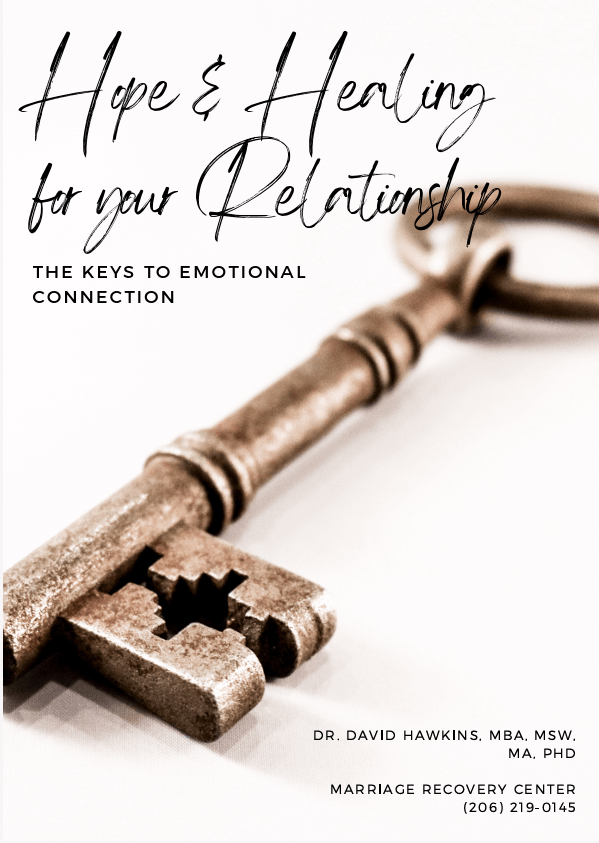Have you ever been in a situation where your spouse finally agrees to go to counseling after months of resisting, only for it to backfire? Does your spouse blame you for everything? It seemed to go well at first and you were cautiously optimistic, but then things quickly went south when he started to use everything he was learning in those counseling sessions as a weapon against you!
All of a sudden, he’s the victim, and you’re the abuser! While not common, this is something we have seen occur, and Dr. Hawkins shares his insights on what to do if you find yourself in this situation.
Does your Spouse Blame you for Everything?
Addressing Emotional Abuse and Manipulation in Relationships
In the realm of relationships, trust and understanding are the bedrock upon which healthy partnerships are built. However, sometimes individuals undergo therapy or counseling, only to emerge from these programs armed with knowledge that they misuse to manipulate, coerce, or intimidate their partners
This troubling phenomenon can perpetuate emotional abuse and hinder the growth of the relationship. In this article, we will explore this issue and provide insights into how to address it.
Understanding the Problem
Dr. David Hawkins, a leading expert from the Marriage Recovery Center and the Emotional Abuse Institute, highlights the disturbing trend of individuals using therapeutic knowledge against their partners.
While therapy is meant to facilitate personal growth and healing, it can, at times, be misappropriated as a tool for control and manipulation. This misuse often stems from emotional immaturity and is akin to a child’s behavior, where one points fingers at their partner using newfound information.
This behavior, known as the “switcheroo,” involves turning therapy insights against a partner, accusing them of the very issues the therapy aimed to address. Such actions represent a significant violation of the principles of therapy and emotional growth, leading to emotional abuse within the relationship.
Recognizing the Abuse
To address this problem, the first step is to recognize it for what it is: emotional abuse. Emotional abuse manifests when one partner uses information gained from therapy or books to manipulate, control, and dominate the other. By identifying this behavior, individuals can begin the process of healing and rebuilding their relationship.

What to Do When Your Partner Uses Therapy Against You
Addressing this issue requires setting and enforcing clear boundaries in the relationship. Here’s what to do:
1. Recognize the Switcheroo: The first step in addressing this problem is to acknowledge when your partner is using therapy or counseling knowledge against you. Recognize the behavior for what it is: a manipulation tactic.
2. Communicate Boundaries: Communicate your boundaries firmly and calmly. Let your partner know that you will not engage in discussions where therapy or book references are used to blame or manipulate you. Express your desire for healthy communication and growth within the relationship.
3. State Consequences: Make it clear that if your partner continues to use therapy information against you, you will disengage from the conversation or situation. Use simple statements such as, “I will not engage in this discussion if it becomes accusatory or manipulative.”
4. Enforce Boundaries: Stick to your boundaries consistently. When your partner attempts to manipulate or blame you using therapy knowledge, calmly remind them of your boundaries and disengage from the conversation if necessary.
5. Seek Support: If the problem persists and your partner refuses to respect your boundaries, consider seeking support from a therapist or counselor. A professional can help mediate and provide guidance on healthy communication and conflict resolution.
6. Self-Care: Lastly, prioritize self-care. Emotional abuse can take a toll on your mental and emotional well-being. Engage in activities that promote your own emotional healing and resilience.
Conclusion
Emotional abuse in relationships is a serious issue that should not be tolerated. When a partner misuses therapy or counseling knowledge to manipulate and blame, it is crucial to recognize the behavior, set boundaries, and prioritize healthy communication.
Remember that your emotional well-being is essential, and seeking professional support may be necessary to rebuild a healthy and thriving relationship. By addressing this issue head-on, you can work towards a more compassionate, understanding, and loving partnership.
To learn how we can help, reach out to us at (206) 219-0145 or info@marriagerecoverycenter.com to speak with a Client Care Specialist
Also read: Is Emotional Neglect a Form of Abuse?
About Dr. Hawkins:
The internet is inundated with hyperbole and misinformation about narcissism, leaving many people confused and hopeless. Get the facts on narcissism and emotional abuse from someone who has been researching, writing about and treating narcissism and emotional abuse for over a decade.
Dr. Hawkins is a best-selling author and clinical psychologist with over three decades of experience helping people break unhealthy patterns and build healthier relationships.
He is the founder and director of the Marriage Recovery Center and the Emotional Abuse Institute which offers education, training and counseling for people who want to break free of, and heal from, emotional abuse. Whether the perpetrator of the abuse is your spouse, partner, parent, boss, friend or family member, we offer practical advice for anyone trapped in a toxic, destructive relationship.
In addition to narcissism & emotional abuse, you’ll learn about the lesser known forms of abuse, including covert abuse, reactive abuse, spiritual abuse, secondary abuse, relationship trauma and much more.








